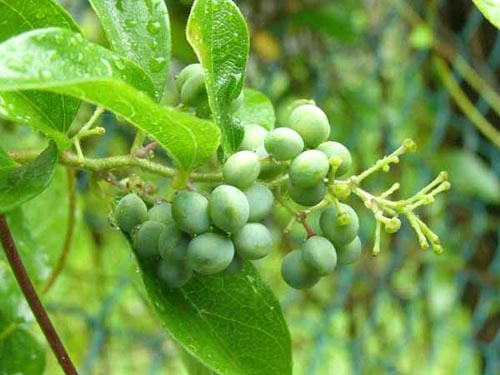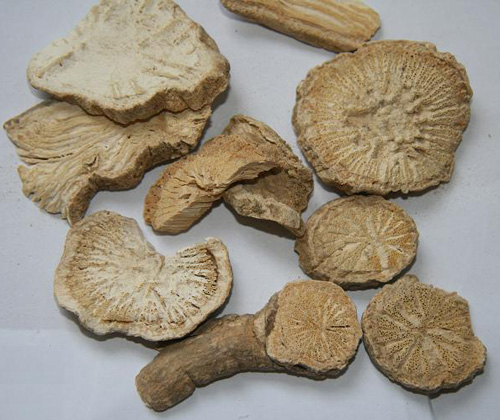Medicinal Properties: Bitter and pungent in flavor, cold in nature and attributive to the bladder, kidney and spleen meridians.
Actions: Expel wind and dampness, relieve pain of Bi-syndrome, and induce diuresis to relieve edema.

Application
1. For Bi-syndrome, especially that due to preponderant damp and heat, which is manifested as red swollen and painful joints and stiffness, it is usually combined with Yiyiren (Semen Coicis), Huashi (Talcum), etc., such as Xuanbi Tang (Decoction) ; for that of wind-cold-dampness type with painful joints, usually used together with Fuzi (Radix Aconiti Lateralis Preparata), Rougui (Cortex Cinnamomi ), and Baizhu (Rhizoma Atractylodis Macrocephalae), etc., such as Fangji Tang (Decoction).
2. It is used for edema, ascitic fluid and dysuria; for edema and abdominal fullness, and difficulty in urination and defecation, it can be combined with Jiaomu ( Semen Zanthoxyli ) , Tinglizi ( Semen Lepidii seu Descurainiae), Dahuang (Radix et Rhizoma Rhei), etc., such as Ji Jiao Li Huang Wan (Pill); for deficiency of yin with edema caused by wind, used together with Huangqi (Radix Astragali ) and Baizhu ( Rhizoma Atractylodis Macrocephalae), such as Fangji Huangqi Tang (Decoction).

Usage and Dosage:
5 - 10 g is used in decoction for oral use. Mufangji (Cocculus Trilobus) is suitable for expelling wind to relieve pain and Hanfangji (Stephania Tetranda S. Moore) is suitable for promoting diuresis to relieve edema.
Notes:
Used with caution in the weak with yin deficiency and poor appetite, since the Chinese medicinal herb is very bitter and cold and easily damages stomach-qi. Fangji from a perennial trailing vine, Aristolochia fangchi Wu, family Aristolochiaceae contains such chief element as aristolochine, which can result in acute damage to kidney function.v







